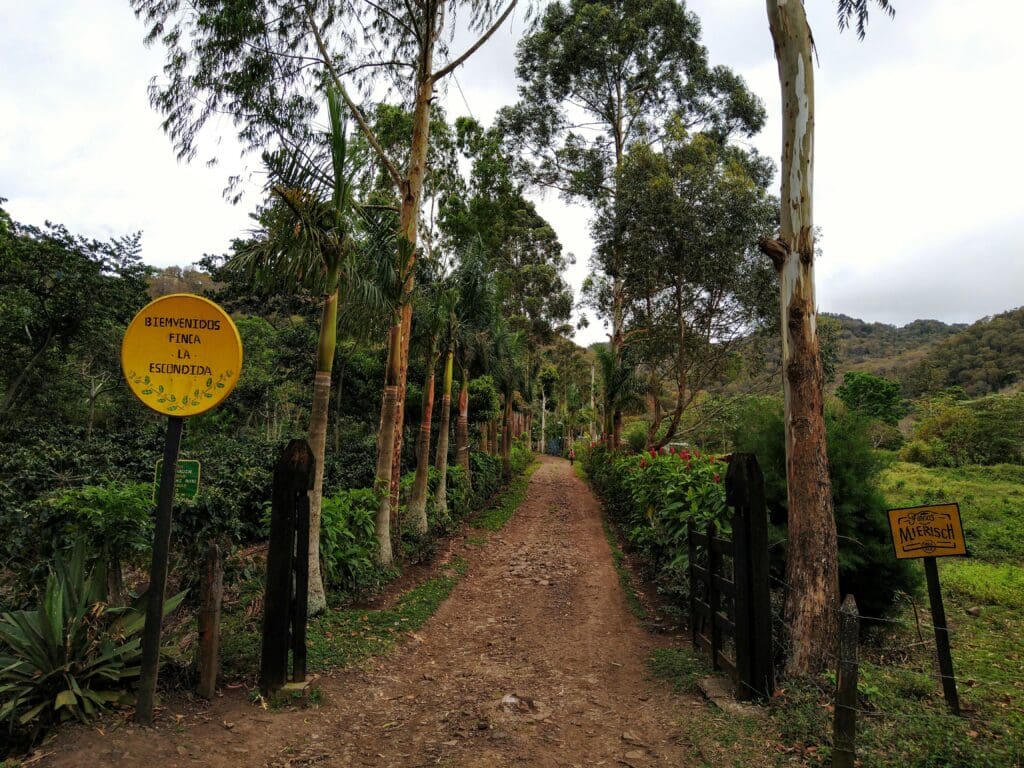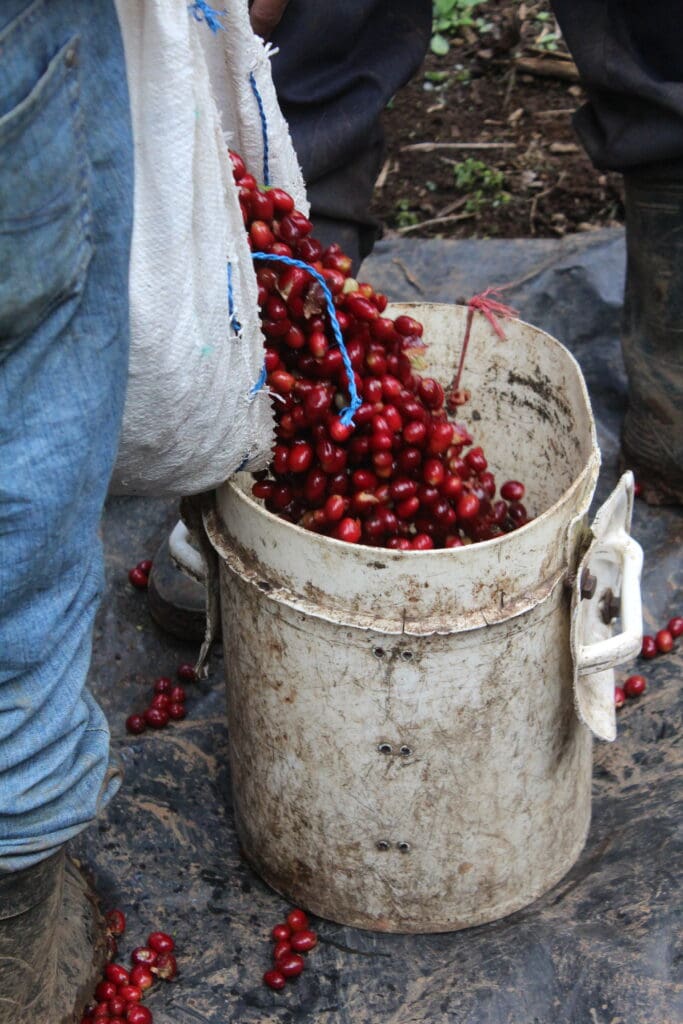Finca La Escondida is found in Nicaragua’s Jinotega department, located at the base of the same mountain as Fincas Las Delicias and San Jose, La Esondida’s partner farms in Fincas Mierisch. La Escondida is home to Fincas Mierisch’s varietal garden—which currently includes H1 Centroamericano, Yellow and Orange Pacas, Tekisic, Obata, Venecia, Pink Bourbon, SL-28, and Arara—where they test varieties before deciding whether they will add them to the production of their other farms. The farm includes 70 hectares of coffee production, with elevations spanning 975–1230 meters above sea level, and employs 25 permanent workers as well as an additional 180 employees during the harvest season.
Fincas Mierisch’s Java variety comes with a storied history. In 2001, members of Mierisch family came across a roadside fruit vendor on their way home from one of their farms. Upon stopping to purchase fruit, they noticed a bag labeled “java,” and enquired about its contents. The vendor claimed that the bag contained coffee seeds of the famous Java variety, and despite being skeptical that these were truly authentic they took a chance and purcahsed the seeds.
After planting the seeds and caring for the plants, the family was pleased to discover that these coffee trees were indeed the longberry Java variety, and they went on to establish a plot of the trees at their Finca El Limoncello, earning 2nd place in Nicaragua’s 2007/2008 Cup of Excellence, as well as 4th place in 2017 with coffee grown at Finca Las Delicias. Originally believed to be a mutation of Typica, genetic testing has since found the variety to be an Ethiopian heirloom taken from the country to the island of Java where it got its name. Today, Fincas Mierisch calls the coffee “Javanica” to represent the variety’s new Nicaraguan home.
This lot of Javanica underwent Washed processing. Ripe cherries were selectively harvested before being floated for sorting. The sorted cherries were pulped with the least amount of water possible in order to preserve the coffee’s mucilage. The pulped coffee was then dry fermented for 36 hours before being fully washed with clean water. The washed parchment was then transported to Beneficio Don Esteban in Matalgapa to be dried. Drying began on a patio, where the parchment coffee was covered with black polymeric netting which allows air to pass between the ground and the coffee in order to acheive even drying. The coffee was dried on the patios for two days in total sun exposure, and then moved to raised beds in a greenhouse where it was dried for 13 days with 75% shade exposure.






